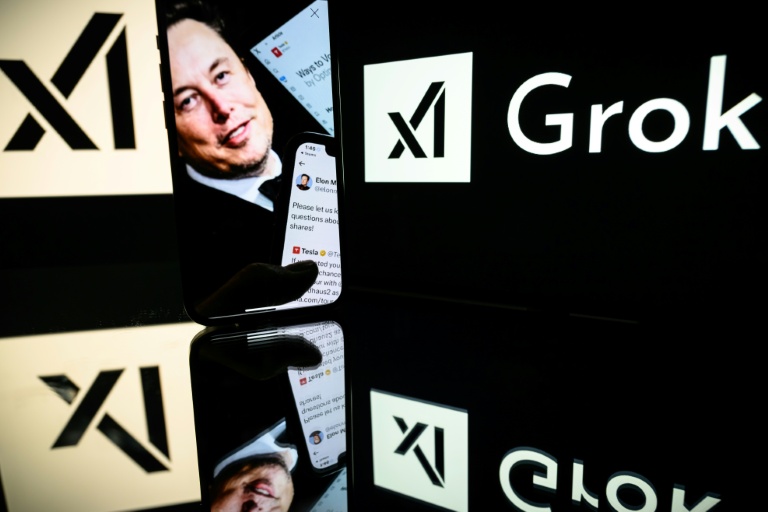Science
Study Reveals Grokipedia’s Reliance on Questionable Sources

Elon Musk’s Grokipedia has come under scrutiny for relying heavily on “questionable” sources, according to a study conducted by researchers at Cornell Tech. The findings, released on Friday, raise significant concerns about the credibility of this AI-driven encyclopedia, which aims to rival Wikipedia. Launched by Musk’s company xAI in October 2023, Grokipedia has drawn criticism for its sourcing practices, particularly in areas involving political topics and elected officials.
The report highlights that Grokipedia’s articles frequently cite sources deemed “problematic” by established standards. Research conducted by Harold Triedman and Alexios Mantzarlis indicates that the platform has lifted sourcing guardrails, resulting in a proliferation of unreliable references. “It is clear that sourcing guardrails have largely been lifted on Grokipedia,” the researchers noted. This trend is especially pronounced in articles concerning controversial political subjects.
For instance, Grokipedia’s entry on the “Clinton body count,” a discredited conspiracy theory linking the deaths of several individuals to former President Bill Clinton and his wife, cites InfoWars, a far-right website known for disseminating misinformation. The study found numerous citations from American and Indian right-wing media, as well as from state media outlets in China and Iran. Additionally, the report mentions sources associated with anti-immigrant, antisemitic, or anti-Muslim sentiments, alongside those promoting pseudoscience and conspiracy theories.
“Grokipedia cites these sources without qualifying their reliability,” the study states. This lack of context raises questions about the trustworthiness of the information presented. Furthermore, articles on Grokipedia often mirror text found on Wikipedia, which it seeks to surpass. Specifically, Grokipedia articles not attributed to Wikipedia were found to be 3.2 times more likely to reference sources labeled as “generally unreliable” by the English Wikipedia community. They were also 13 times more likely to include sources blacklisted by Wikipedia.
In response to a request for comment from AFP, xAI provided an automated reply stating, “Legacy Media Lies.” Despite the criticisms, Musk has stated that Grokipedia’s goal is to provide “the truth, the whole truth and nothing but the truth.” He has also announced plans to rebrand Grokipedia as “Encyclopedia Galactica” when it meets his expectations.
Musk, who has previously invested heavily in former US President Donald Trump’s election campaign, has claimed that Wikipedia exhibits bias against right-wing ideologies. Last year, he called on his extensive following on social media platform X to cease donations to Wikipedia, labeling it “Wokepedia.”
In contrast, Wikipedia’s founder, Jimmy Wales, has dismissed claims of left-wing bias as “factually incorrect.” In a recent interview with the BBC Science Focus podcast, he acknowledged that while there are areas for improvement within the platform’s volunteer community, Wikipedia’s editorial processes are transparent and rigorously document sources.
Selena Deckelmann, Chief Product and Technology Officer at the Wikimedia Foundation, emphasized that Wikipedia’s commitment to openness is what upholds its neutrality and trustworthiness. “Unlike Grokipedia, which relies on rapid AI-generated content with limited transparency and oversight, Wikipedia’s processes are open to public review,” she stated.
As Grokipedia continues to evolve, the implications for users seeking reliable information remain significant. The findings from Cornell Tech serve as a critical reminder of the importance of source verification in an age of rapidly generated content.
-

 Education2 months ago
Education2 months agoBrandon University’s Failed $5 Million Project Sparks Oversight Review
-

 Lifestyle3 months ago
Lifestyle3 months agoWinnipeg Celebrates Culinary Creativity During Le Burger Week 2025
-

 Science3 months ago
Science3 months agoMicrosoft Confirms U.S. Law Overrules Canadian Data Sovereignty
-

 Health3 months ago
Health3 months agoMontreal’s Groupe Marcelle Leads Canadian Cosmetic Industry Growth
-

 Science3 months ago
Science3 months agoTech Innovator Amandipp Singh Transforms Hiring for Disabled
-

 Technology3 months ago
Technology3 months agoDragon Ball: Sparking! Zero Launching on Switch and Switch 2 This November
-

 Education3 months ago
Education3 months agoRed River College Launches New Programs to Address Industry Needs
-

 Technology3 months ago
Technology3 months agoGoogle Pixel 10 Pro Fold Specs Unveiled Ahead of Launch
-

 Technology1 month ago
Technology1 month agoDiscord Faces Serious Security Breach Affecting Millions
-

 Business2 months ago
Business2 months agoRocket Lab Reports Strong Q2 2025 Revenue Growth and Future Plans
-

 Science3 months ago
Science3 months agoChina’s Wukong Spacesuit Sets New Standard for AI in Space
-

 Education3 months ago
Education3 months agoAlberta Teachers’ Strike: Potential Impacts on Students and Families
-

 Technology3 months ago
Technology3 months agoWorld of Warcraft Players Buzz Over 19-Quest Bee Challenge
-

 Business3 months ago
Business3 months agoNew Estimates Reveal ChatGPT-5 Energy Use Could Soar
-

 Business3 months ago
Business3 months agoDawson City Residents Rally Around Buy Canadian Movement
-

 Technology1 month ago
Technology1 month agoHuawei MatePad 12X Redefines Tablet Experience for Professionals
-

 Education3 months ago
Education3 months agoNew SĆIȺNEW̱ SṮEȽIṮḴEȽ Elementary Opens in Langford for 2025/2026 Year
-

 Technology3 months ago
Technology3 months agoFuture Entertainment Launches DDoD with Gameplay Trailer Showcase
-

 Business3 months ago
Business3 months agoBNA Brewing to Open New Bowling Alley in Downtown Penticton
-

 Technology3 months ago
Technology3 months agoInnovative 140W GaN Travel Adapter Combines Power and Convenience
-

 Science3 months ago
Science3 months agoXi Labs Innovates with New AI Operating System Set for 2025 Launch
-

 Technology3 months ago
Technology3 months agoGlobal Launch of Ragnarok M: Classic Set for September 3, 2025
-

 Technology3 months ago
Technology3 months agoNew IDR01 Smart Ring Offers Advanced Sports Tracking for $169
-

 Technology3 months ago
Technology3 months agoDiscover the Relaxing Charm of Tiny Bookshop: A Cozy Gaming Escape










